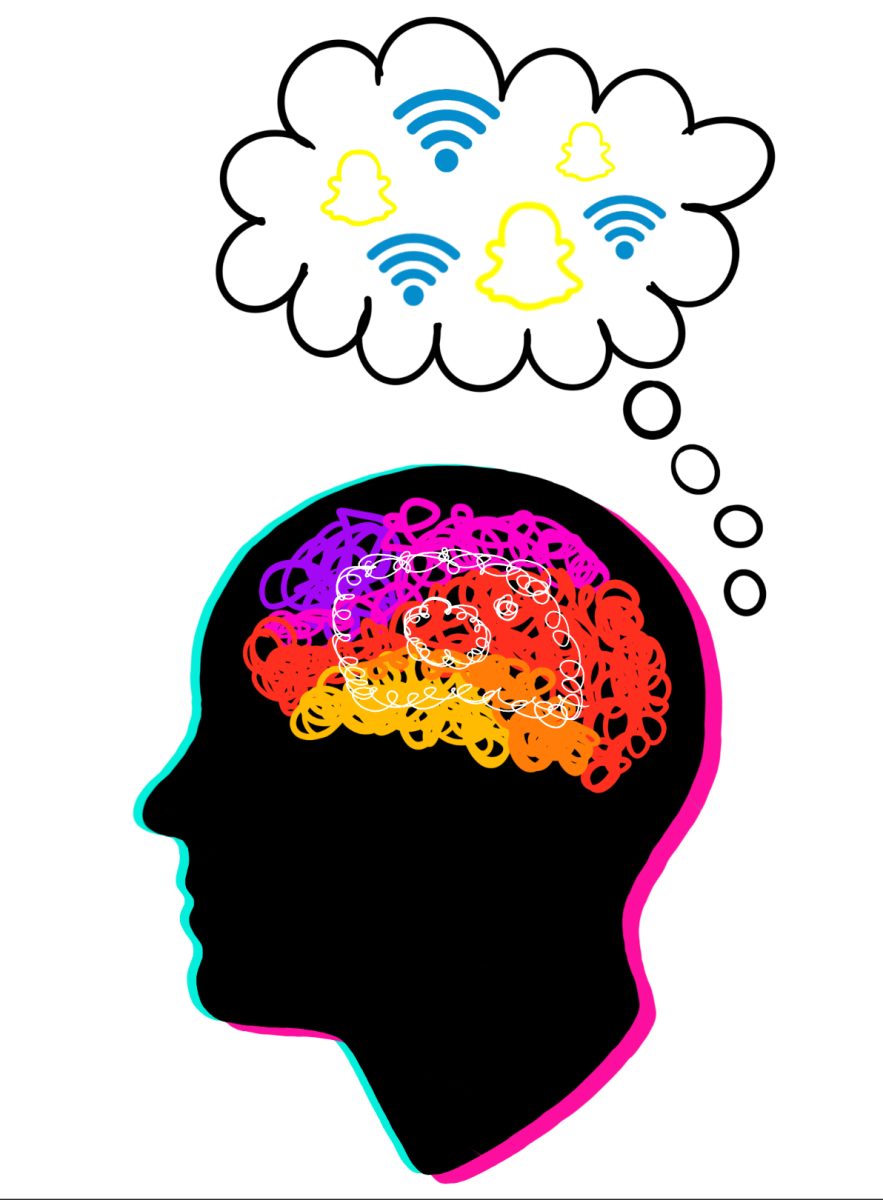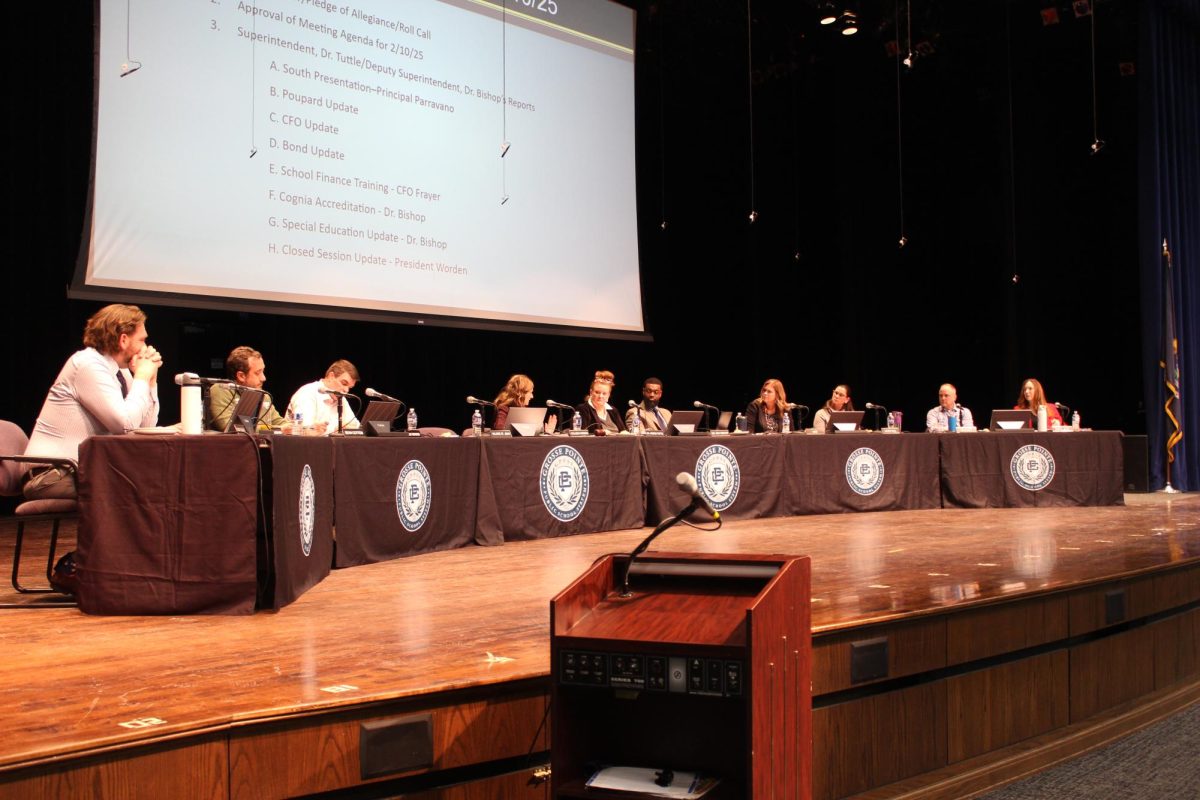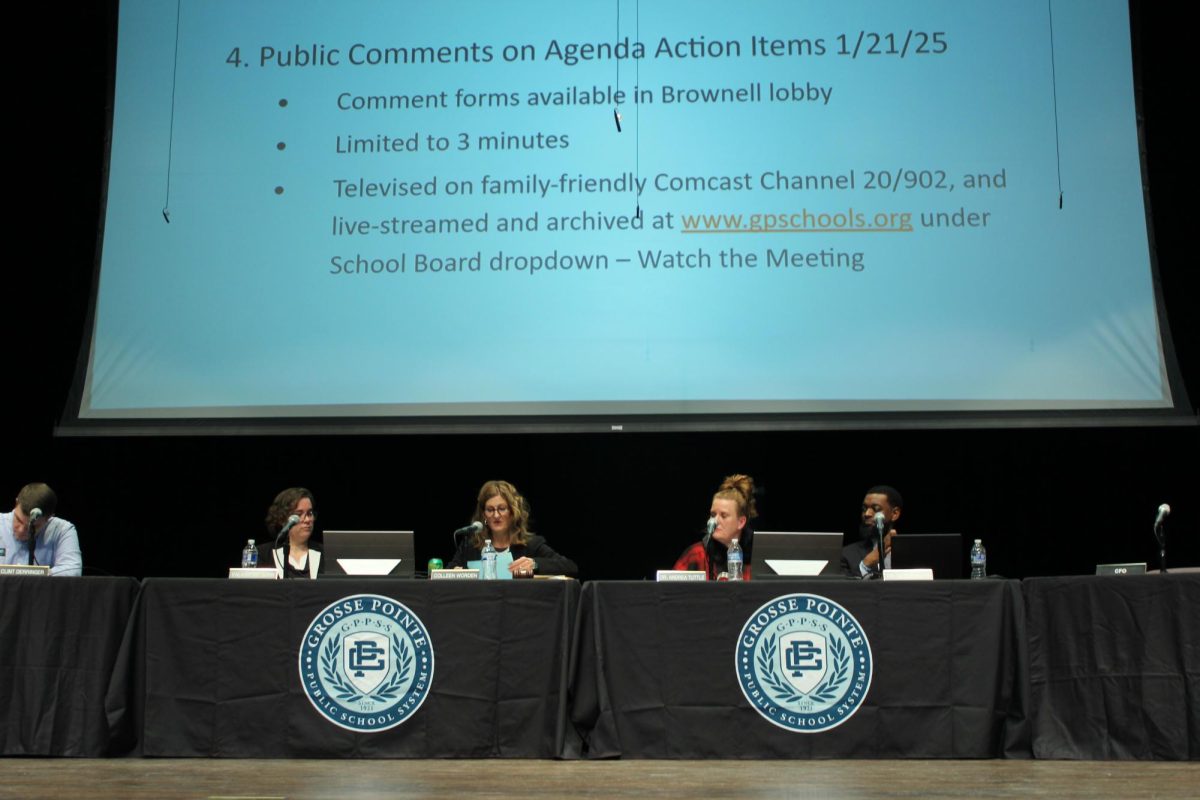As lessons wrap up, a pin drop can often be heard in countless classrooms as teenagers immediately pull out their phones and immerse themselves into the realm of what has taken over the world: the internet. Rather than talking with one another about weekend plans or recent adventures, adolescents often use social media to catch up with peers and the world around them.
For psychology and English teacher Katie Parent, the intentional tuning out of the real world can be discouraging to witness, especially when compared to only a few years ago when students would use extra time at the end of class to converse with one another.
“It’s a little disheartening, people can just put headphones in, sound in their ears, screen in front of their face and tune out the outside world,” Parent said. “It gives them an excuse to not interact with other people.”
As content stimulates the brain, dopamine is released, which elicits feelings of pleasure and satisfaction. According to cyberpsychologist Dr. Jana Blahošová, this gives the brain rewards, which keeps people continuously coming back for more and feeds into the loop of more time spent scrolling.
“The unpredictability of the rewards is very effective in creating a habit where you use [social media] frequently,” Blahošová said. “Because you don’t know when it happened, you tend to use it repeatedly because you expect the reward of dopamine.”
The algorithm of social media platforms was purposely manufactured in order to entertain people continuously, providing each individual with content that is uniquely engineered to their interests based on what they have enjoyed in the past. This keeps people scrolling through whatever they find interesting for hours on end, increasing their screen time and habits of using social media and the internet constantly.
“Phones and apps are designed to keep you using them, they are very intentionally designed to hack the brain,” Parent said. “They’re engineered to keep you coming back or to keep you scrolling, that infinite feed where you just keep scrolling and scrolling, that’s designed like that on purpose.”
This algorithm can often contribute to sleep deprivation, especially when the content consumed before bedtime is negative and harmful to the person consuming it. When scrolling before bed, it’s often easy to lose track of time and become wrapped up in the entertainment aspect rather than prioritizing going to bed.
“(Studies) found a quite strong and consistent association that bedtime media use was connected with lower sleep quantity, poorer sleep quality and excessive daytime sleepiness,” Blahošová said. “When (the content) is super entertaining and you have a lot of pleasure from that, it’s hard to get rid of the phone and go to sleep, and it’s going to influence the length of your sleep because it’s going to make you go to bed late.”
According to Blahošová, media usage before bed can be negative, but the outcome of sleep quality and quantity is entirely dependent on the type of content that is being consumed.
“You can watch some videos which are fun, so you can go to sleep quite relaxed, and in a good mood, so logically you can sleep better and longer because of these positive things,” Blahošová said. “It’s so dependent on the activity.”
A large aspect of the information that can be found on social media is current events and things that are happening in the world currently. For Brennen Richards ’24, social media helps him stay connected to the world around him.
“It’s good because I know what’s going on,” Richards said. “I use it as a source of media and it’s how I find out what’s going on in the world, and I feel like I would just be out of the loop [without it].”
For Richards, staying in the loop isn’t the only benefit to accompany social media usage. It can also be used to help interact with people who aren’t physically present, and to further relationships that would otherwise wither away.
“The internet and social media can also be a good way for people to bond and form new connections,” Richards said. “I communicate with my best friends by using my phone.”
In general, there are positives and negatives to social media usage, especially in a time where the continued advancement is not only expected, but encouraged. According to Blahošová, the ways used to consume content is essential in maintaining a healthy relationship with the internet, especially with parent regulation from a young age. When parents communicate with their children and set boundaries rather than strict rules, children can often be prevented from using the internet problematically.
“Especially to adolescents during this time, they try to be as autonomous as they can,” Blahošová said. “With this kind of usage, the parents can be something like their safe haven when there is an issue.”


















































































